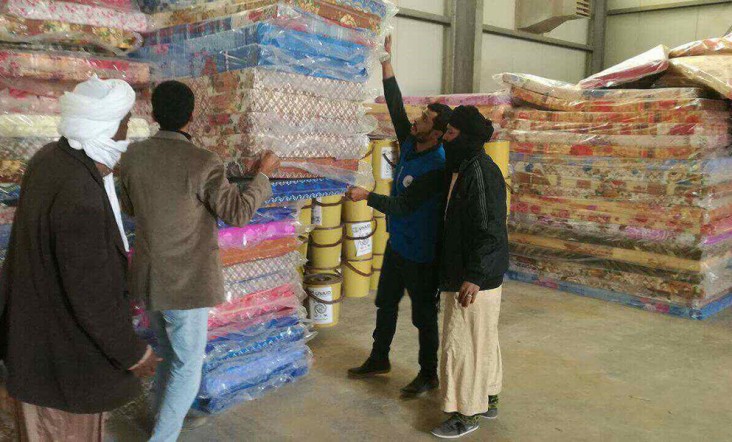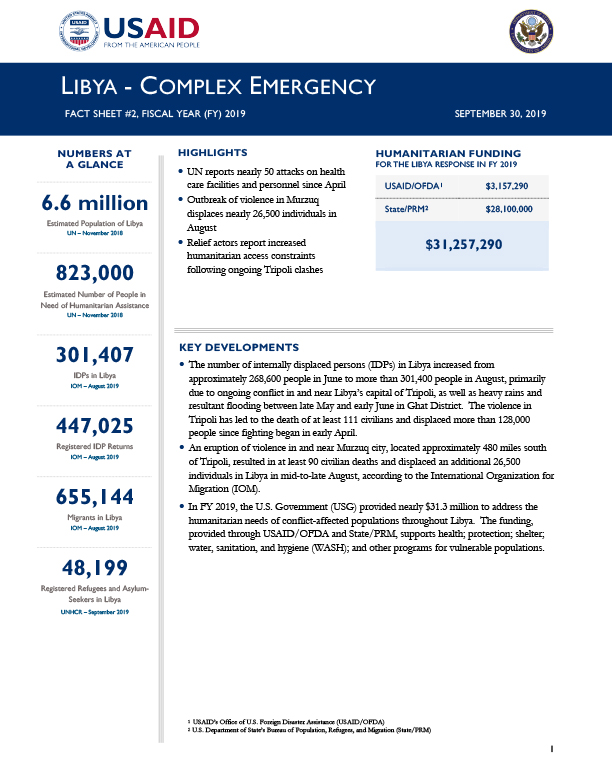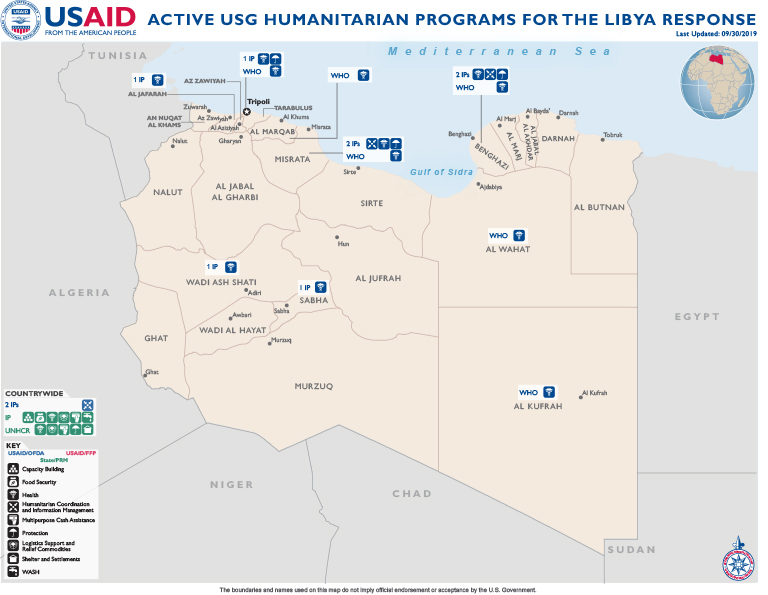- What We Do
- Agriculture and Food Security
- Democracy, Human Rights and Governance
- Economic Growth and Trade
- Education
- Environment and Global Climate Change
- Gender Equality and Women's Empowerment
- Global Health
- Humanitarian Assistance
- Transformation at USAID
- Water and Sanitation
- Working in Crises and Conflict
- U.S. Global Development Lab
Speeches Shim

Latest Libya Fact Sheet
Libya Complex Emergency Fact Sheet #2 - 09-30-2019 ![]() (pdf - 633k)
(pdf - 633k)
Libya Map - 09-30-2019 ![]() (pdf - 416k)
(pdf - 416k)
view text version [pdf, 633kb]
Key Developments
The number of internally displaced persons in Libya increased from approximately 268,600 people in June to more than 301,400 people in August, primarily due to ongoing conflict in and near Libya’s capital of Tripoli, as well as heavy rains and resultant flooding between late May and early June in Ghat District. The violence in Tripoli has led to the death of at least 111 civilians and displaced more than 128,000 people since fighting began in early April.
An eruption of violence in and near Murzuq city, located approximately 480 miles south of Tripoli, resulted in at least 90 civilian deaths and displaced an additional 26,500 individuals in Libya in mid-to-late August, according to the International Organization for Migration.
In fiscal year 2019, the U.S. Government provided nearly $31.3 million to address the humanitarian needs of conflict-affected populations throughout Libya. The funding, provided through USAID and the U.S. Department of State's Bureau of Population, Refugees, and Migration, supports health; protection; shelter; water, sanitation, and hygiene; and other programs for vulnerable populations.
Background
Since 2011, escalating armed conflict, civil unrest, and political instability in Libya have adversely affected an estimated 2.4 million people—approximately 40 percent of the population—and internally displaced more than 484,000 people. An estimated 47 percent of displaced persons have since returned to areas of origin. Conflict and poor economic conditions continue to drive displacement and humanitarian need, while Libya’s public infrastructure has sustained substantial damage and the country’s economy has collapsed, leading to shortages of basic household goods. Health services, in particular, have been adversely affected, with a substantial proportion of health facilities only partially operational or closed. Although local and international humanitarian stakeholders continue to implement emergency relief operations, humanitarian access is limited in many areas due to conflict. Given these conditions, hundreds of thousands of Libyan civilians do not have access to basic services, including life-saving health care, food, safe drinking water, and shelter. On November 16, 2016, U.S. Ambassador Peter W. Bodde issued a disaster declaration for Libya due to the effects of the ongoing complex emergency and lack of local capacity to effectively address the humanitarian needs of vulnerable populations affected by conflict.



Comment
Make a general inquiry or suggest an improvement.